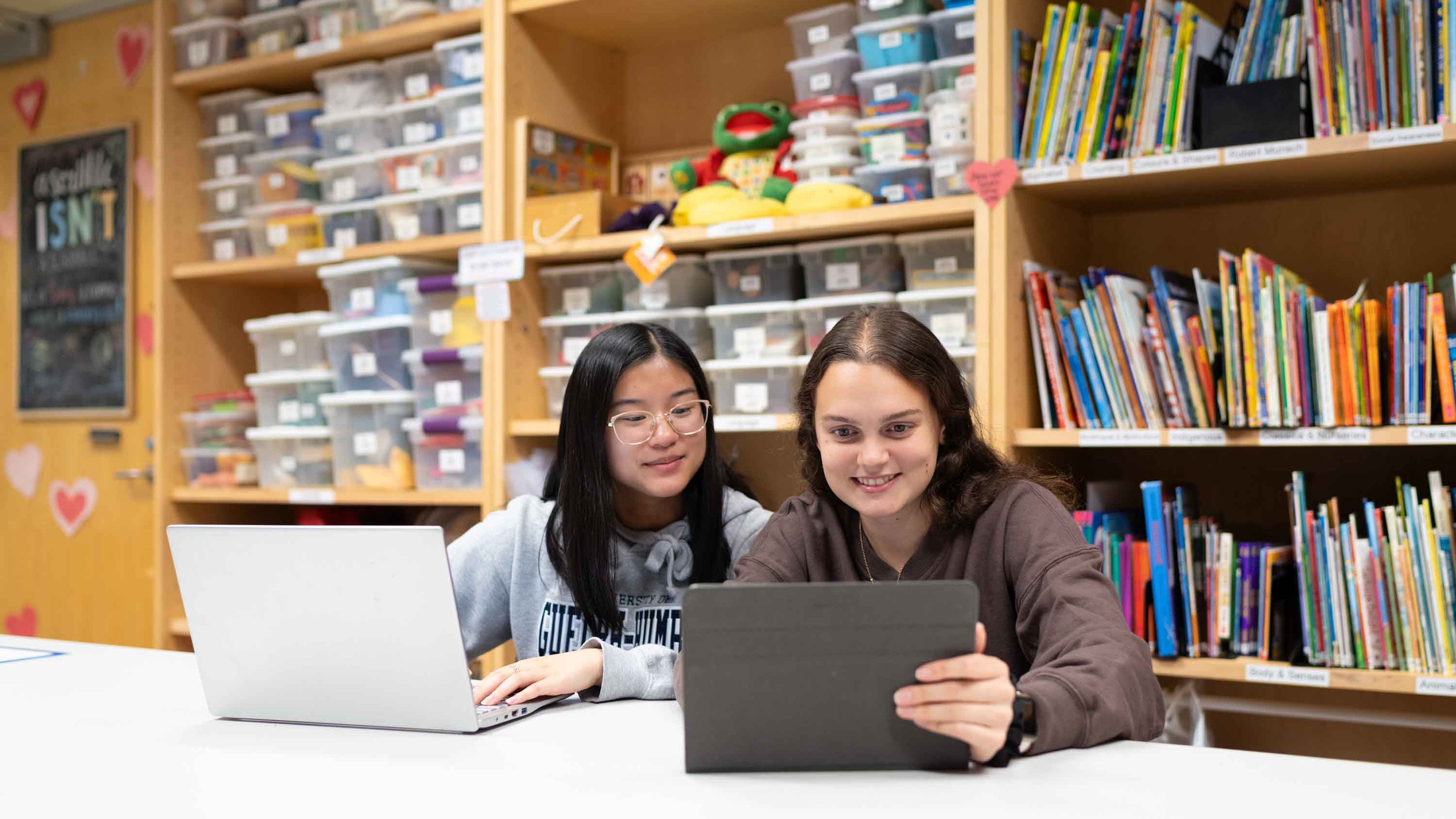University of Guelph-Humber offers groundbreaking Early Childhood Studies specialization: Children’s Futures
U of GH is the first institution in the world to offer this specialization
As the course selection period for Winter 2025 approaches, students are considering what they want to learn next semester. But this time is especially thought-provoking and exciting for Early Childhood Studies (ECS) students who have the option to select a brand-new and cutting-edge area of specialization in their third year: Children’s Futures.
The University of Guelph-Humber (U of GH) is the first educational institution globally to offer this specialty, according to ECS Chair Dr. Nikki Martyn. Selecting this novel specialization is something for students to consider as the Winter 2025 course selection period draws closer.
Students also have the option to specialize in Infant & Child Mental Health or Pathway to Child Life in their third year. But specializing isn’t mandatory; students can follow a generalized path to grain a broader understanding of the ECS field. If students complete the three courses within a specialization, it will be displayed on their transcript.
“The most valuable thing students can do is remain curious, adaptable, play with ideas, and be committed to supporting the well-being and development of children in whatever capacity they choose,” Dr. Martyn said.
She continued, “Specializations like Children’s Futures or Infant & Child Mental Health provide a unique opportunity to dive deeper into specific fields and ideas. All the courses will broaden the students’ perspectives and understanding of children, humanity, and our future.”

Children’s Futures
Futures Studies is an academic discipline that focuses on the comprehensive nature of technological advancement in societies.
In an age of rapidly evolving technology, Children’s Futures allows students to examine its impact on children’s lives. This specialization allows students to understand how technology, privacy laws, human connection, and ethical issues, like the use of artificial intelligence, play a role when it comes to the needs, learning, and development of children.
Central courses for this specialty include Ethics & Privacy with Children, Technology & Innovation, and Designing for the Future. Dr. Martyn said these will “prepare students for addressing the multifaceted needs and challenges of children in the rapidly evolving global landscape.”
U of GH will also have a corresponding lab – the Child Futures Innovation PlayHub. Ongoing research will take place here, exploring how technology shapes children’s experiences for a safe and healthy future. This lab is open to all students, not just those in the ECS program, due to its interdisciplinary nature.
Dr. Martyn said it’s “important to see and hear all unique and divergent perspectives,” which is why all students are welcomed to take part in the lab’s events, such as SparkSpaces events (where play and connection spark ideas and innovation) and the FuturesMind collective (where play and purpose in a changing world is explored).
“This specialization also incorporates human-centred design and forecasting through its Designing for the Future course, equipping students to create future-ready solutions that balance technological advancements with deep human connection and sustainability,” Dr. Martyn said. “Graduates are prepared to shape a future that prioritizes the holistic well-being of children.”
For students interested in this area, possible careers include policy development, education innovation, child advocacy, or even roles within organizations that reflect the future of children and technology, such as UNICEF’s child futurists.
Infant & Child Mental Health
Moreover, for students interested in specializing in Infant & Child Mental Health, areas of study include hands-on courses in developmental neuroscience, grief, social epigenetics (the connection between social experiences and genetics), and more – all focusing on how these factors influence how the minds of children are shaped.

“Together, these courses provide a holistic and deeply scientific understanding of infant and child mental health, equipping professionals with the skills and knowledge to support children's development in thoughtful, informed, and compassionate ways,” Dr. Martyn said.
Potential careers with this specialization include social work, child welfare, early intervention specialists, and others.
Pathway to Child Life
As for Pathway to Child Life, this area equips students with knowledge of optimal development for infants, children, youth, and family members to “minimize psychosocial trauma in children facing challenging experiences related to health care and hospitalization.”
Future avenues in this area include working in pediatric health or building a career as a Certified Child Life Specialist. Students specializing in Child Life have also pursued graduate studies.
“It’s important that students are future-ready and explore their passions and interests while remaining open to new ideas,” Dr. Martyn said.
To stay up to date with key course selection dates, click here.




